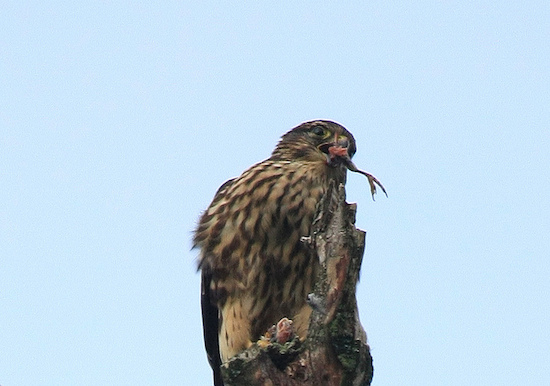“Super Villains”
It feels strange to write an “introduction” for this piece because—while writing the poem—what I thought it was “about” kept shifting. When I thought I was describing old-fashioned, human meanness, what I actually wrote was a mere caricature of that meanness. When I began to humanize that caricature, to make it more tangible and honest, what I wrote was actually about empathy. When I thought I was revising a poem about empathy, it turned into a study of the complicity—the speaker’s or the world’s—that allows the terrible to be terrible. When I went to finish the poem about complicity, a poem about meanness emerged. This poem is a revolving door of those elements, which (in its own way) is probably a more actuate portrayal of that human characteristic I originally set out to describe. (Olzmann) 
Super Villains
The New Face of Evil dreamed it was an eagle
ripping the lungs from a sparrow,
or it was an altar for human sacrifice,
or it was seated at the head of a long table
in a boardroom six hundred feet above the metropolis,
and when it woke up, it set forth to make believers of the uncertain.
It sent its fists into the world to preach a gospel
of broken noses and evaporated pensions
to all who needed conversion.
Jawbone of the weak, ribcage of the frightened—
pay me what I am owed, it said. Everyone paid.
I was there in the beginning.
I don’t like to talk about this.
Back then, The New Face of Evil was young and ambitious,
and even had a name: Jason or Alex or Something Like That.
Anyway, Jason or Alex or Something Like That
laid siege to a small village and set all the crops aflame,
or maybe he was still a teenager
and cornered some poor kid in the school locker room.
Perhaps it was even earlier: he was nothing more than an angry child
kicking a dog in his parents’ basement,
while I—also a child—stood by: terrified.
No. That’s not the beginning.
It began like this.
In grade school, he was my only friend.
He studied all the time, as if he was born on a blackboard.
As if—on that blackboard—his father was made of chalk
and his mother was an equation that could never be solved.
Childhood was the scrape of the eraser across that slate,
the way it kept taking everything back,
leaving him with nothing.
On the day report cards were mailed home,
I walked to his house. His father beat him with a wire hanger.
I went back home. My friend went up to his room to study.
I don’t know what happened next.
—
 Matthew Olzmann‘s first book of poems, Mezzanines, was selected for the 2011 Kundiman Prize and was published by Alice James Books. His writing has appeared or is forthcoming in New England Review, Kenyon Review, Poetry Northwest, Forklift, Ohio and elsewhere. He’s currently a Visiting Professor of Creative Writing in the undergraduate program at Warren Wilson College. (matthewolzmann.com)
Matthew Olzmann‘s first book of poems, Mezzanines, was selected for the 2011 Kundiman Prize and was published by Alice James Books. His writing has appeared or is forthcoming in New England Review, Kenyon Review, Poetry Northwest, Forklift, Ohio and elsewhere. He’s currently a Visiting Professor of Creative Writing in the undergraduate program at Warren Wilson College. (matthewolzmann.com)
—
More work from Matthew Olzmann appears in Poetry Northwest Summer & Fall 2014, and on the web site here.
photo credit (detail): Seabamirum via photopin cc
